39 Hacks For Reducing Your Food Waste
Has supermarket waste got your knickers in a twist?
Good.
Now I apologise in advance, for I may be about to twist them a bit more.
It’s for a good reason though - honest.
You see… negative publicity and consumer demand for plastic-free fruit and veg is creating ripples of change across UK supermarkets. Big changes are happening, albeit rather slowly. It's encouraging either way.
Today I’m going to raise awareness on another sustainability issue that isn't getting the same amount of attention.
One that is worse for the environment, for human beings, and for animals.
That issue is food waste.
Before I share my 39 hacks to reduce your food waste at home, I need you to understand why consumer awareness in Western countries is crucial.
If we hope to prevent 10.2 million tonnes of food from going into UK landfills each year (or 670 million globally), we need to talk about how the supermarkets’ unethical practices are leading to huge quantities of edible food being wasted.
In this post I will discuss:
why food is really wasted (supermarkets vs consumers vs farmers),
if supermarkets have too much power,
how food waste is a human rights and social justice issue.
39 hacks for reducing food waste
Feel free to skip to my list at the end, but if you have the time, I'd love for you to read this and share. I've spent all my free time doing research and the exploitation that happens in the food industry is truly disgusting and needs to be talked about.
Photograph taken in my local Morrisons
How much food do supermarkets really waste?
In 2015, a report by the BRC said that the seven UK supermarkets were only to blame for 1.3% of food wasted and that the focus needed to be on farmers and us ordinary folk that shop in them.
This is very interesting when you consider four years later the only supermarket that is transparent about its food waste is Tesco.
In fact, all the supermarkets have top-secret supply chains and are very good at moving their food waste around.
Each year £250 million worth of food, that was created for people, gets sent away to be turned into animal feed and to generate energy (also known as anaerobic digestion, or AD) which there are a number of government incentives.
Supermarkets would have you believe they are giving loads to charity but it only amounts to around 2% according to food waste charity Fareshare.
Oh, and remember that BRC report that claimed supermarkets were only to blame for 1.3% of food waste in the UK? It turns out that any food that is turned into animal feed or energy isn’t counted in food waste statistics. It’s classed as prevented waste because it isn’t going to landfill. So how much edible food are the supermarkets really wasting? No one knows.
It doesn’t seem right that they can send their excess food off to the meat industry when there are 8.4 million people in the UK struggling to afford to eat.
Tap this to pin this to your zero waste board:
Why is food wasted?
DID YOU KNOW: When food rots in landfills it turns into methane, a greenhouse gas much more potent than carbon dioxide. Food waste contributes to 8% of emissions, yet 69% of Brits have no idea food waste contributes to climate change.
If you’re offered something for free, you take it, right?
When you're on a low income, have lots of mouths to feed, or just too many bills... a free product can feel like a win.
I totally get it, the plastic-covered multi-packs of fruit and veg are much better valued for money... But when you buy perishable food that wasn't on your shopping list, only because of the multi-buy offers, there is a higher chance of it going bad.
Why? Because you bought too much.
It can be hard to avoid getting caught up in the supermarkets’ price wars.
If you take one thing away with you today, I want it to be this question:
Have you ever considered that the supermarkets already have too much food that they know will go to waste, so by giving it away for free or at huge discounts it ends up in your bin instead of theirs’?
Using advertising and promotions, supermarkets can literally shift their excess short-dated food to your trolley, and when it goes out of date the statistics will say it was your fault.
Not only is it manipulative, but supermarkets are also profiting from it.
But that's only the tip of the problem.
* Pause *
It’s important to me that you know there is no judgement here. I don’t blame anyone for opting for multi-packs to save money, I have to do it myself sometimes. I’m also guilty of falling for consumerist tricks, of being too tired to cook or forgetting something was in my fridge. I fully believe it is up to supermarkets to fix this problem.
* Un-pause *
Best before dates - are they necessary?
Many people throw perfectly good food away when it’s reached its best-before-date.
A survey by the food waste app Too Good To Go revealed 720 million eggs were thrown away in 2018 with one in three people saying they bin any carton that is past the date on the box. Eggs in the UK only carry a best-before-date, not a use-by-date.
I don't think the supermarkets can put the full blame on consumers for being confused over their outdated policies, do you?
…Especially when they've put an irresistible special deal on so you've bought twice as much short-dated food as you needed.
If you want to make the most of your food regardless of its best-before date, don’t forget to check out my 39 hacks to reduce your food waste at the of this post.
READ: The difference between best-before-dates and use-by-dates.
READ: How to tell if your eggs are good or bad.
Do supermarkets have too much power?
DID YOU KNOW: The seafood industry is one of the worst for human rights abuses? A woman working in a prawn factory in Indonesia said she had to peel 1 prawn every 6s or she faced verbal abuse and punishment. Several women said they were not allowed to bring sanitary pads to work and toilet breaks were used as discipline.
A young boy trying to catch fish in Tanzania - Taken myself (2015) on a disposable camera.
Farmers overseas
Just like the fashion industry, corporations have managed to separate us from our purchases. Do you know who made your food?
Oxfam’s campaign: Ripe For Change - Ending Human Suffering In Supermarket Supply Chains revealed that supermarkets took 10 times more profit than the farmers who make their most popular products.
The highest paying executive at a supermarket earns more in five days than the people who grow our food and drink may earn in their lifetime.
Tesco’s CEO Dave Lewis received a £1.6 million bonus this year, meaning he took home a total of £4.6 million. Whereas tea workers in India that earn less than £2 a day went on strike last year over a 39p payrise. Disgusting isn’t it?
Because of unethically low wages, many farmers picking grapes, bananas and tea overseas don’t have enough money for food and are trapped in extreme poverty.
Poorly paid suppliers and long-term poverty leads to child labour, trafficking, physical and sexual abuse. Workers in developing countries have no protection because the supermarkets and other corporations don’t want to know.
In order to keep prices low for consumers, provide unseasonable food all year round, keep shareholders happy, and give themselves massive bonuses, supermarkets use unfair trading practices and abuse their power to force suppliers to take the hit.
READ: How have Oxfam scored your supermarket’s supply chain.
READ: More information on how supermarkets underpay farmers.
Support Oxfam’s work tackling poverty by shopping in their online store.
Climate change has a devastating impact on communities that rely heavily on agriculture in East Africa. Taken myself in 2015 on a disposable camera.
How supermarkets abuse their power in the UK and EU
Supermarkets hold 90% of the market, and 50% of UK consumers choose supermarkets’ own brand products - there is no competition meaning farmers have no bargaining power.
4 out of 10 farmers in Belgium said: “retailers use cosmetic standards as an excuse to reject produce when they can get a lower price elsewhere.”
With up to 40% of crops being rejected for being too big or too small (plus the risks of pests and bad weather), farmers in the UK and EU overproduce because they are terrified of losing supermarket contracts if they don’t meet their orders.
When too much food is produced, a few things can happen:
Price in store is lowered, distorting customers’ view of the value of food.
Supermarkets then demand a lower price than what was agreed because they had to sell for less.
Instead of taking responsibility for the excess or preventing it happening again, the supermarkets put deals on in store, reject it or send it straight back to the farmers.
Other supermarkets then demand a discount from their suppliers so they can lower their prices to compete… they may even look for a cheaper supplier, causing their original order to go to waste.
By threatening to take their business elsewhere, supermarkets abuse their position and get their own way..
“Imagine a supermarket will say it wants 10,000 packets of strawberries. On Monday and Tuesday the food is accepted. On Wednesday the food is rejected. When produce is not selling well – perhaps it’s been raining and nobody is buying strawberries – the supermarket rejects the consignment, but there is no difference in the actual strawberries. Believe me, I have seen it happen time and time again...”
- European strawberry producer supplying UK supermarkets (Source Feedback Global)
A study by WRAP revealed that £ 30 million worth of strawberries and lettuce went to waste in 2015.
I’m sure you see where I’m going with this by now, is it the farmers who need to change or the entire food retail system?
In Tanzania people had their own chickens and they wandered around freely. People ate chicken only on special occasions like Easter Sunday. If you travelled to the market they were all kept in tiny cages stacked on top of one another.
Supermarkets and dairy (UK)
(There are no animal cruelty photos or comments about going vegan here).
In the UK, 60,000 dairy farmers have gone under.
Although UK farms are supposed to be higher welfare than other countries, low prices and mass-production have forced the conditions of slaughterhouses and dairy farms downhill, with 1 in 5 cows never seeing the light of day.
The majority of cows in the UK are now housed, fed, and milked in the same shed. They are prone to infections due to cramped conditions and intensive milking.
In order to produce milk, a cow has to have a baby. The majority of newborn calves are taken away within 24 hours causing high levels of stress to the mother and her baby.
Because of the unethical treatment of animals in the dairy industry, more people are choosing plant-based milks than ever before, and one in four cow’s milk drinkers choose the organic option.
It’s worth noting that all supermarkets sell meat and dairy that isn’t free-range and organic which means they are supporting and funding poor animal welfare practices.
To top it all off, milk is the third most wasted product at the household level.
If you drink milk and are in a position to do so, please consider buying from a local farm but visit first to check they are not separating the mother and baby.
30 hacks for reducing food waste and eating sustainably
The bit you’ve been waiting for is finally here. I’m sure you’ll know some of these hacks, but hopefully you’ll learn something new today.
If you’ve got a good tip - leave it in the comment section below, I’d love to learn from you too.
Organisation
The first eight tips discuss how organising your life and your kitchen can PREVENT food waste and impulse shopping.
1. Meal plan
What I like most about meal planning, is the lack of brain power required throughout the week.
By scheduling what you’re going to eat a week or two ahead you are less likely to impulse shop, and you won’t need so many trips to the shops.
Meal planning should be simple - write down the food that you enjoy and already know how to cook.
Learn how to meal plan here.
2. Inventory
It’s too easy to forget what’s in the cupboard and accidentally buy multiple food items. If you create an inventory of your fridge/freezer and update it regularly you will be less likely to buy what you don’t need.
It also helps you to know what needs to be used up so you don’t forget something in the back of the freezer.
3. Shopping list
It sounds obvious but use a shopping list (based on your meal plan) and stick to it. When you go food shopping, don’t buy anything you don’t need. It’s hard but say no to some of the special offers, but you’ll feel better for it in the long run.
4. Meal prepping
Who said eating sustainably can’t be convenient? It will make you more likely to stick to your meal plan if you take an hour or so to prep your food in advance.
Cut your veggies up when you get them (you can even do this in front of the telly in the evening) so you have less work to do during the week.
For example, if you peel and chop your onions and store them in a sealed glass container (plastic will hold the smell), then when you finish work you can just throw them straight in the pan each day.
You can also separate prepared ingredients into portions and freeze them, so meals are all ready to cook when you want them.
5. Slow cooker
If your food goes to waste because you’re too tired to cook at the end of the day then you need a crock pot.
A slow cooker changed my life! Prep the ingredients in advance and then just throw them in the pot before you go to work - when you come home it’ll be ready.
How awesome is that?
6. Batch cook
If you make double portions when you cook, you can freeze it and eat it on a day when you’re feeling too tired or lazy to cook. Preparing meals in advance means that you can make the most of your leftovers, and have dinner ready for days you know you won’t want to cook.
7. Rotate food
Store new food at the back of the fridge. It sounds silly, but it is so easy to forget you have an item if it’s hidden behind something else. If you have the food you need to eat first at the front there is less chance it’ll be wasted.
8. “Eat me soon”
Life gets busy, so have a system that reminds you what needs to be used up. This can be in the form of a chalkboard, a whiteboard, a spare shelf, or a box in the fridge - whatever works for your family.
I have a small fridge freezer and I’m quite short, so an “eat me list” works best for me. It has two columns - leftovers and food that needs eating soon.
If you’d prefer a box, then you can make a funky sign that catches the other people in the house’s attention.
Comment below if you’re a “eat me box” or an “eat me list” person - I’m curious!
Storage
This section of the food waste hacks looks at how to correctly store food to prevent it going off quicker. Apparently 70% of people have been storing tomatoes wrong (including me), how mad is that?
9. Storing fruit and veg
Don’t store fruit and veg next to each other in the fridge or pantry. Fruits produce ethylene gas which can make the vegetables ripen or sprout much faster, so make sure you separate them.
Learning to store your fruit and vegetables correctly will prolong the life of the food in your fridge and pantry.
10. Store carrots in water
Cut the tops of your carrots and submerge them in water (which needs to be changed every few days - water your plants with the extra water) and your carrots may last for two weeks in the fridge. This also works for celery… and asparagus can be dipped in water too.
11. Store chopped apples in water
Storing certain chopped or peeled foods in water makes them last another 24 hours. This one is particularly good if you have children or are weaning a baby and don’t need the whole apple at once.
Peeled potatoes that you don’t need yet can also be stored in water to keep them fresh overnight.
12. Garlic, onion, tomatoes and cucumber
This one blew my mind when I found out! These 4 foods should be stored at room temperature - who knew?
In the fridge, onions go soft, cucumbers go mushy and tomatoes deteriorate much faster according to food scientist, Peter Barham.
Garlic should be stored in an open container to promote air circulation and onion does best in a dark place. Garlic and onion can be kept together but onion should be away from potatoes.
Tomato also emits ethylene gas and should be kept away from cucumber and potatoes. Tomatoes can be kept in the fridge once they are ripe though, and cucumbers an hour before if you want them cold and fresh.
13. Freeze fresh herbs
Fresh herbs give extra flavour but they don’t last long. To avoid wasting them, put chopped fresh herbs into ice cube trays with olive oil and chuck in the freezer. When you go to cook just pop out a cube.
Garlic can also be stored this way to extend it’s life and make meal prepping easier.
14. Freeze fruit and bread
These vegan bread wraps are great for keeping bread fresh for longer, but if you know your family won’t get through all the fruit or bread you have in your home, freezing is a great way to avoid it going to waste.
Learn how to freeze bread here.
14. Empty food into containers
Glass jars have become a bit of a zero waste icon these days. Sure it looks pretty, but there is logic to it as well.
When opening food that comes in plastic, transfer it to an airtight container. It doesn’t have to be made of glass, just use what you already have and start saving any pasta sauce jars you use.
Jars will stop grains, flours, sugar and spices from spilling, getting infested with bugs, or being exposed to the air.
15. Storing green leafy veg
Greens wilt fast, but there is a few ways you can prolong their life to up to 10 days in the fridge.
What I do is wrap them in a damp tea towel and place in the draw of my fridge. If they get squashed they won’t last as long so use your space wisely.
16. Excess spinach and lettuce
If you know you won’t get through all the leafy greens in your fridge, there is an excellent hack to stop them going to waste.
First of all blanch them (30s in boiling water, then straight into cold water) and dry them completely.
Then you can either freeze as they are for your next meal, or blend them with some water (in which case drying doesn’t matter) and freeze in ice cube trays ready to add to smoothies or sauces.
17. Prolong avocado
If you eat avocado, but don't need a whole one. Mash it up, add a teaspoon of lemon juice (to prevent in browning) and pop into ice cube trays. Defrost a cube the night before you fancy some avocado on toast.
Getting more uses out of one avocado also reduces their carbon footprint.
Avoiding waste
The next load of hacks are to help you make use of food when it is coming to the end of it’s life to avoid throwing it in the bin.
18. Ice lollies
If no one wants to eat the soft, sad looking fruit, chuck it in a blender with whatever else you have (yogurt or spinach are good) and make ice lollies or for the kids.
You can buy plastic-free reusable ice lolly moulds here and make your own eco-friendly Calippos as often as you want. Yum.
19. “Throw it in” recipes
Have recipes prepared that are easy to throw anything that needs using up into – soups, stir fries and stews are always easy. But my favourite is probably curry.
20. Make hummus
Spice up your homemade hummus by adding any limp or leftover veg. Tomatoes or red pepper always go down well with my little boy.
Here is an article explaining how to turn your leftovers into homemade hummus.
21. Vegetable stock
Freeze your vegetable scraps so you can make delicious vegetable stock whenever you need it. Orrrr if you have time, make your leftover scraps into stock there and then and freeze it in an ice cube tray.
This blog shows you how to make it.
22. Reuse food skins
I was taught by a lovely woman on Instagram that soaking banana skins in water for a few days creates a potassium rich plant fertiliser.
Citrus peels can be soaked in vinegar to create (slightly) better smelling, naturally antibacterial cleaning products.
23. Revive stale bread
Over 240 million slices of bread get thrown away each year making it the most wasted food.
Revive stale bread by moistening the outside of the loaf and then popping it in a preheated oven for a few minutes.
DID YOU KNOW: two thirds of wholemeal bread was found to contain the carcinogenic weedkiller Glyphosate (Round Up). Farmers are told to spray wheat with this substance (that causes tumours in animals, and lymphoma in humans) to make it dry and easier to harvest.
Follow the Soil Association’s campaign against Glyphosate here.
24. Regrow food scraps
Instead of throwing away food scraps, why not regrow it? You can give your veggies, fruits and herbs another chance at life, cutting down on your waste and your food bills if you’re successful.
This blog tells you how to regrow 19 different foods from your home.
25. Home composting
If you can, consider home composting. Not only is this good for your garden it has massive environmental benefits because you can stop your food waste going into landfill.
Some councils actually take away food compost, but many of the councils who don’t, offer a discount on compost bins.
Changing the system
The final section is focusing on bigger actions that we as consumers can do to show we want change in the food system. It won’t necessarily prevent food from being wasted in the supermarket supply chain, but we can take away some of their power.
26. Choose wonky veg
Buy the wonky fruit and veg. Not only is it cheaper, it lets supermarkets know we aren’t perfectionists and don't care for their cosmetic standards.
27. Ignore best before dates
After the best-before-date food may lose some of it’s quality, but it is still completely edible most of the time.
I once bought a loaf of bread reduced to 10p in Morrisons and it lasted for a week and a half.
Obviously if it’s a use-by-date that is different, but most food doesn’t have a use-by-date unless its meat or dairy.
If your food is transferred into tupperware or jars then you will become used to looking at food to see if it is good enough to eat.
28. Fairtrade animal products
Use your money to vote for the kind of farming practices you want.
Every day consumers waste 3.1million glasses of milk because of the the directions on the label. Feedback Global did a study that shows milk lasts several days after the use-by-date if your fridge is at the right temperature.
All those cows suffering to produce milk that is going down the drain. It’s another example of why the supermarkets urgently need to update their expiry policy.
If milk is something you really can’t give up, then please do your best to drink milk from British cows with high welfare standards.
29. Buy certified products
Many products that all the supermarkets sell from overseas are farmed by people in inhumane working conditions. Unethically low wages result in child labour being used throughout the supply chain.
Child labour is common in the farming of chocolate, tea and cotton.
Ensure products you buy are certified by a third party scheme like Fairtrade, UTZ or Rainforest Alliance.
DON’T trust company schemes like Cadbury’s ‘Cocoa Life.’ It is estimated there are 2 million children working on cocoa farms in West Africa - although no chocolate manufacturer will admit there are children in their supply chain.
Ethical consumer have a really useful guide to buying ethical chocolate.
30. Connect with your food
When you shop in supermarkets, get in the habit of reading the packaging to find out where it was made.
Be warned, some supermarket meat has deceptive wording about where it was produced. They’ve also been known to create fake farms to trick consumers into thinking they are buying British meat.
There is no way to tell if products from Sainsbury’s own budget brand J.James and Family is from abroad or the UK because all of it is labelled the same - packed in the UK. Click here to take a look. Asda’s budget range Farm Stores says exactly the same thing.
Why won’t they tell us where it’s from?
…They want us to misread it as made in the UK.
Avoid supermarkets
…as much as possible. Take a stand against exploitation and give your money to people who deserve it instead.
Obviously not everyone is in a position where they can afford to pay for ethical food, but there are many affordable options now.
31. Oddbox
You can get a box delivered to your home full of wonky fruit and veg. Oddbox work directly with farms to reduce food waste by redistributing what the supermarkets have rejected for cosmetic reasons. It’s a fantastic idea, don’t you think?
32. Grow your own
Learning to grow a few fruit and veggies has lots of low waste benefits (think no plastic packaging and no carbon footprint).
You and your kids will gain more understanding of the time and resources that goes into growing them. You will be able to change your mindset around food, try new things and be less likely to buy too much food at the supermarket.
If you get good at it, you will save loads of money.
33. Connect with neighbours
Talk to your neighbours about the awful food waste situation and see if they want to form a community.
It doesn’t have to be big, but you can swap excess food, share leftovers, and each choose something different to grow.
34. Choose local, seasonal food
Imported food has a shorter best-before-date and a high carbon footprint. Locally grown food costs the supermarkets more but it would have a longer shelf life, and boost our economy.
Even better - miss the supermarkets out completely and go straight to the butchers, the baker, a zero waste/refill store, a market, or the greengrocer.
If you go towards the end of the day you can sometimes get cheaper food.
READ: List of seasonal food for each month in the UK
35. Download Olio
This free app allows people and shops to share excess food for free.
You take a photo of leftovers you don’t want and someone will contact you asking if they can come and collect it. Food can be cooked or raw, open or sealed, and you can also have a browse to see if there is anything you want.
Originally the app was created for communities to reduce food waste by swapping what they don’t need, but incidentally it has helped a lot of people who are struggling financially.
36. The Real Junk Food Project
Have you ever tried a pay as you feel cafe?
This brilliant charity is working on changing the current food system . They take food that the supermarkets would otherwise throw in the bin, and run a cafe where you “pay how you feel”
Anyone can eat there and you decide the value of the food by paying with your time, cash, skills or donations. It’s an environmental business that doesn’t rely on money, but promotes kindness and a fairer world instead.
They now operate in 7 different countries.
37. To good to go app
Another app kicking food waste’s butt.
They allow cafes, restaurants and hotels to sell their food waste at a heavily discounted price.
You can use the app to find participating restaurants, place an order and go collect it.
38. Organic food
Organic farming practices are much more sustainable than regular ones. Riverford farm (where I get my organic fruit and veg box from) say that when they have food that is damaged, too ripe, or too large to fit in their veg boxes, they do the following:
Give it to their staff
Give it to charity
Feed it to their animals.
Apparently cows love broccoli, who knew?
Riverford provide a selection of different boxes, from quick-to-cook or seasonal produce, to organic animal products.
They even do vegan recipe boxes with new recipes each week.
It is more expensive than non-organic food (tastes better though) but they’ve got a price comparison chart against supermarket organic.
To make it affordable I get a box every fortnight, portion and freeze the fruit, and batch cook food to get me through that second week.
READ: You can see their range of different boxes here.
READ: Or to see how their farming practices are better for the environment, click here.
39. Demand change
Write to your MP about your food waste concerns (include the benefits of a council composting service too).
Hassle the supermarkets on social media and spread the world about this huge issue - big corporations tend to act when they are getting enough negative publicity.
Don’t buy unethical products in their stores - corporations that exploit people and animals or are destructive for the environment (think Nestle).
Well that’s my 39 tips to reduce food waste done - I hope you don’t mind odd numbers.
Did you learn anything new today?
How are you trying to eat more sustainably?

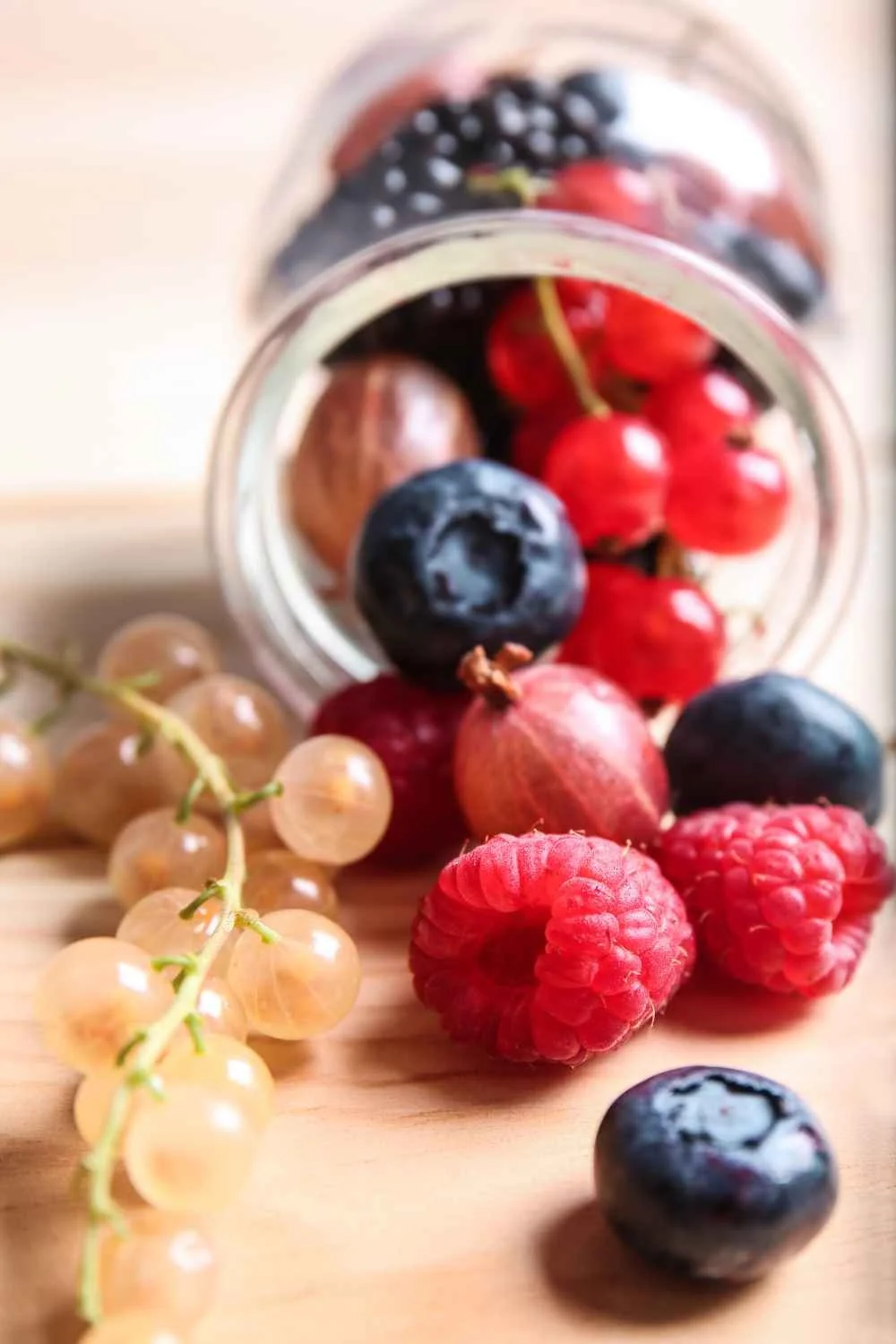
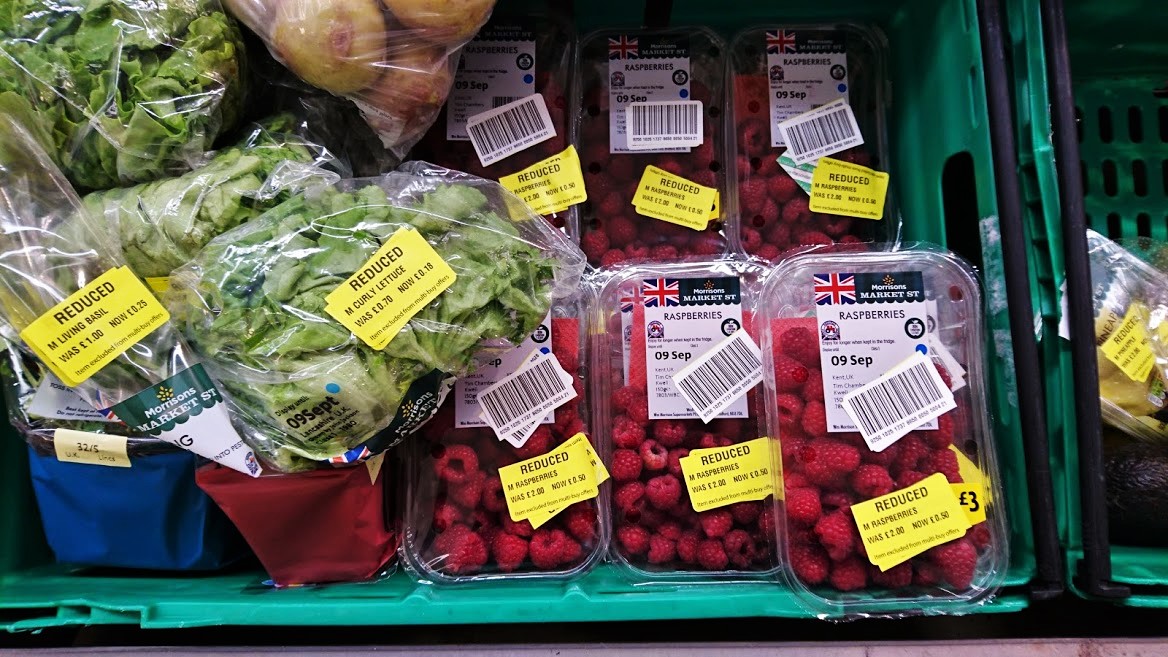
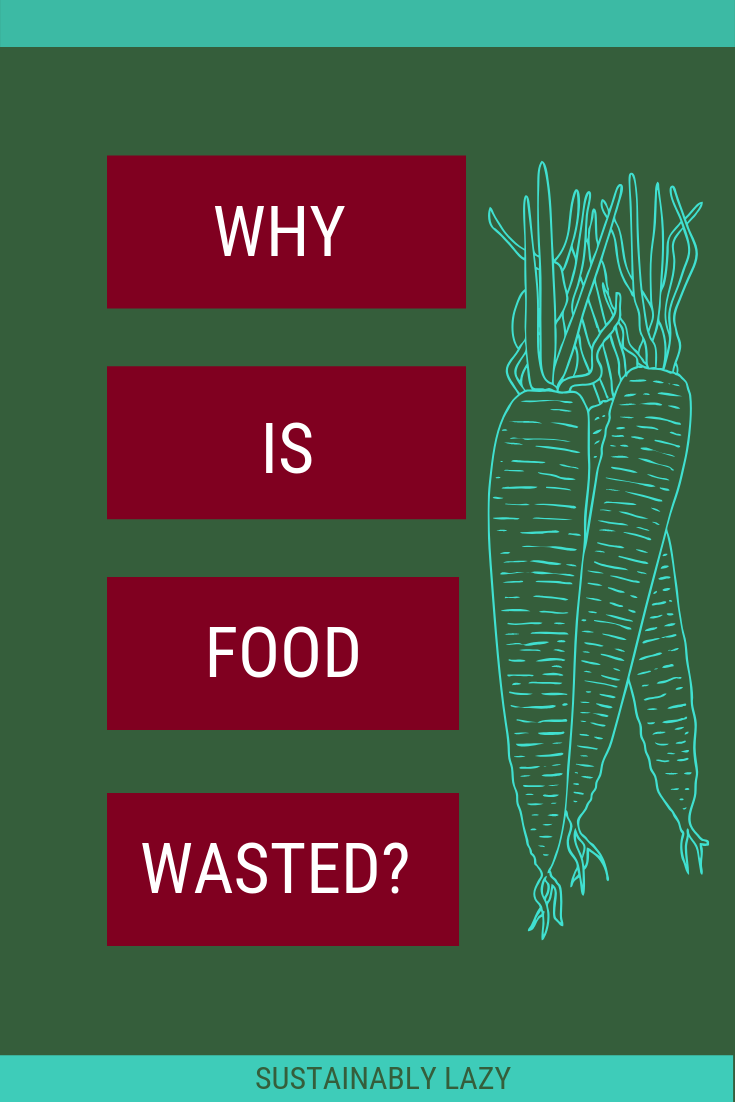
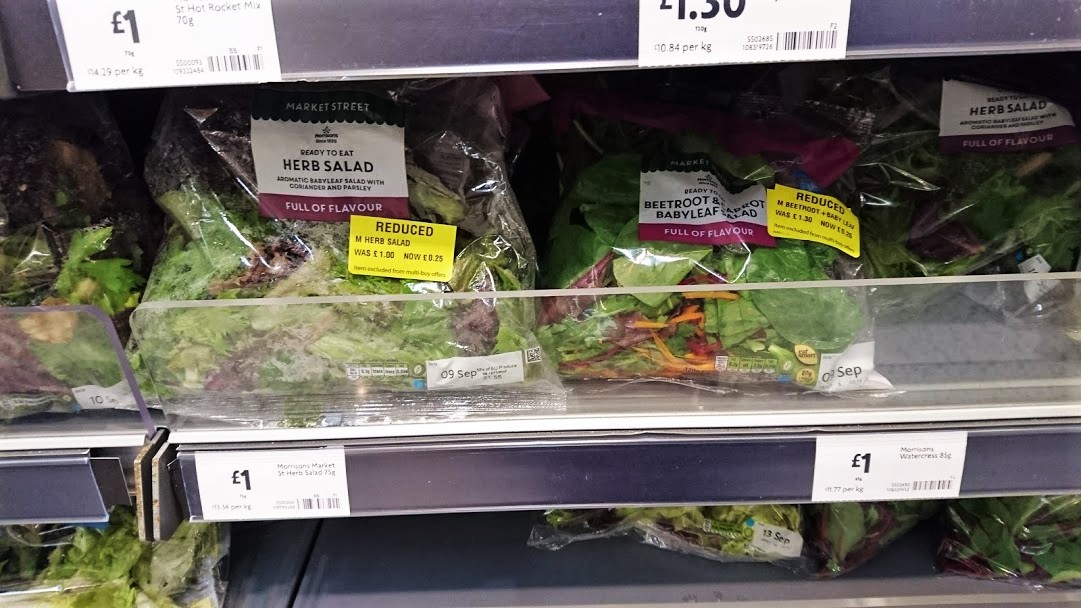
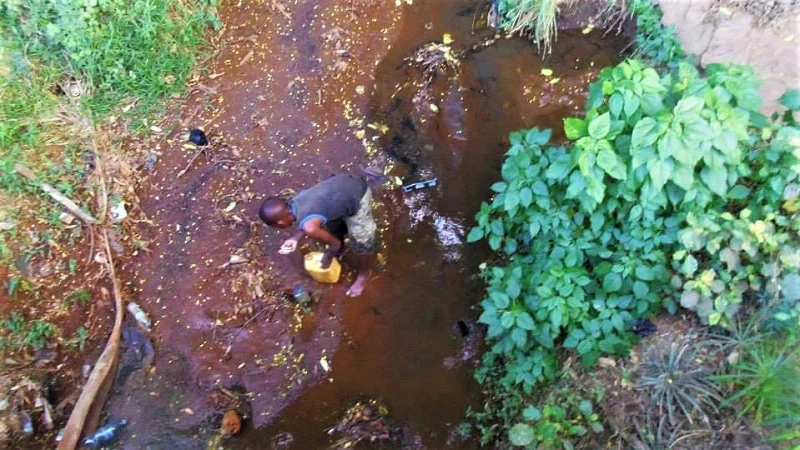

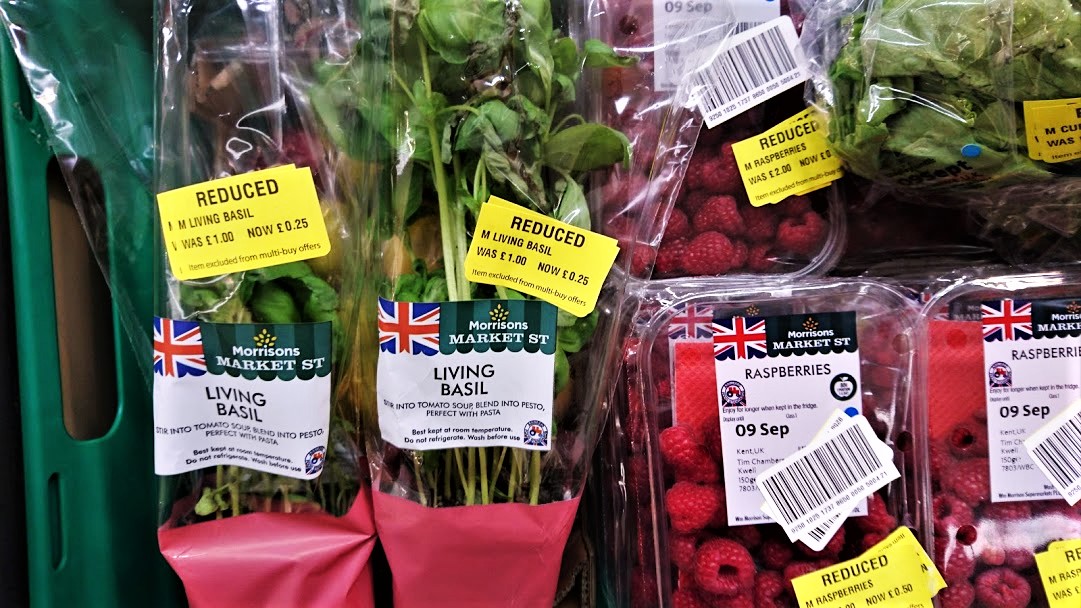



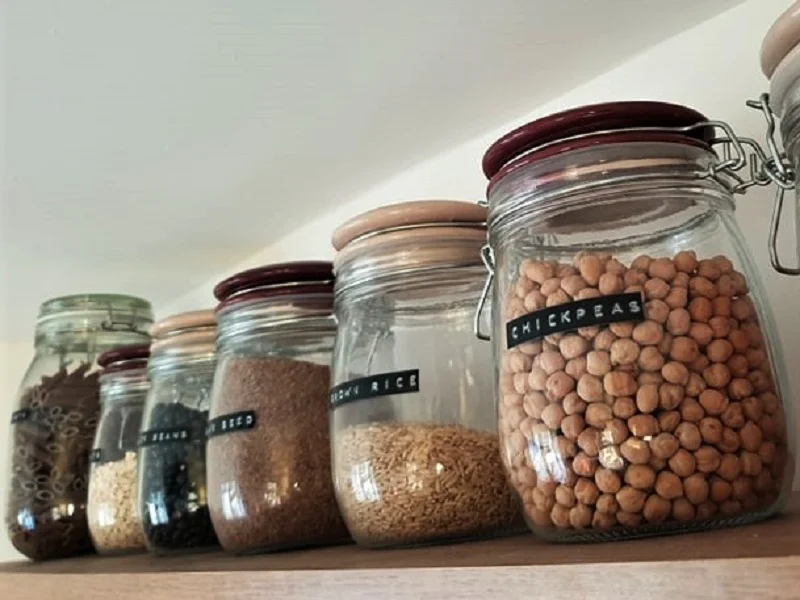

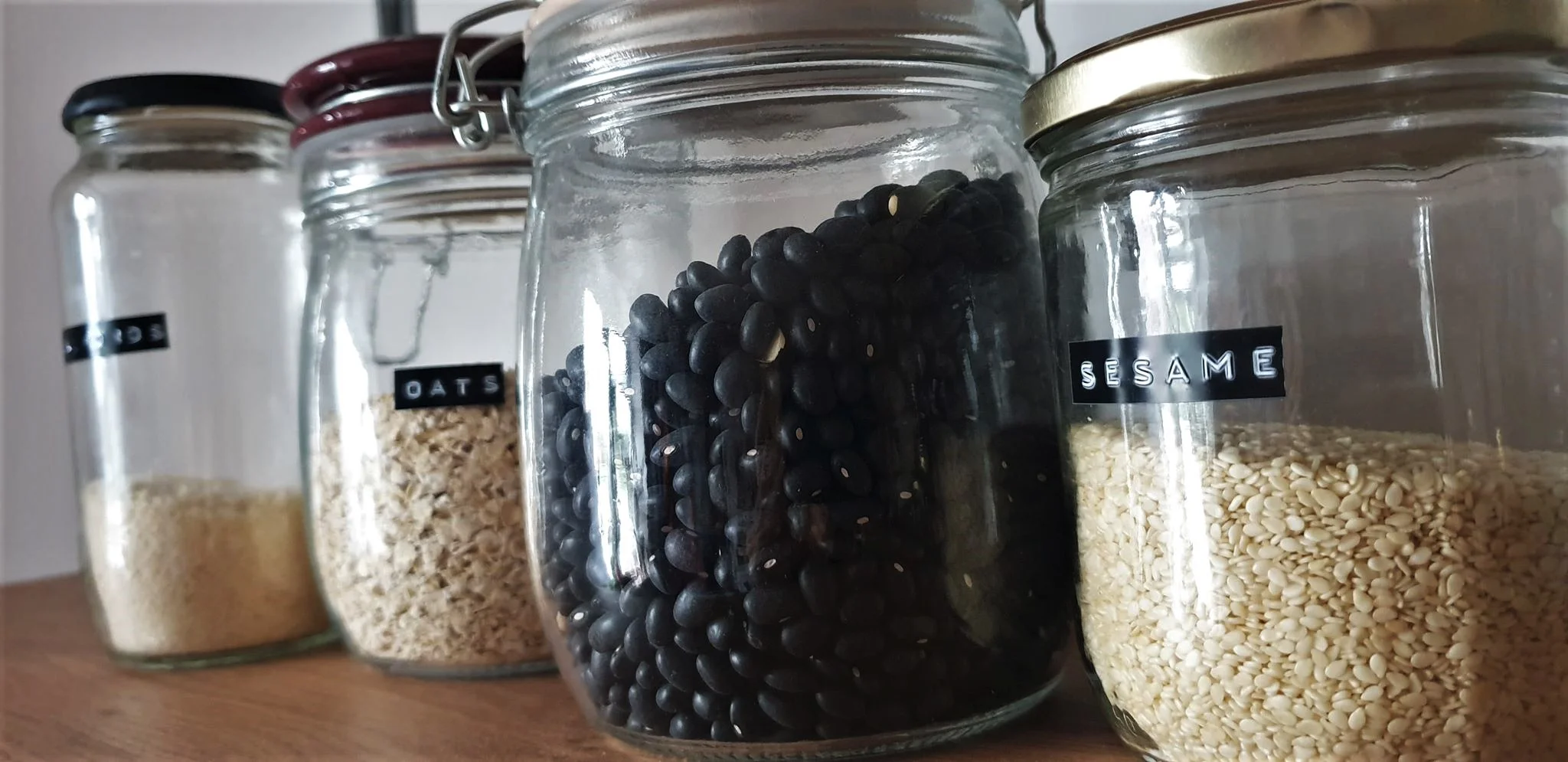
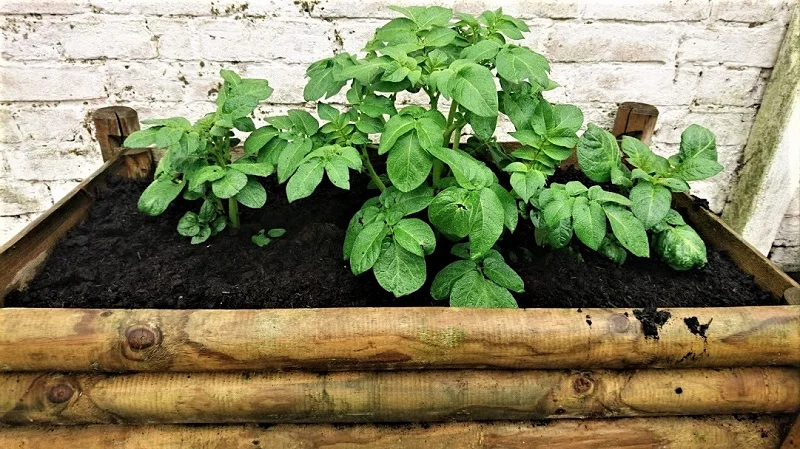
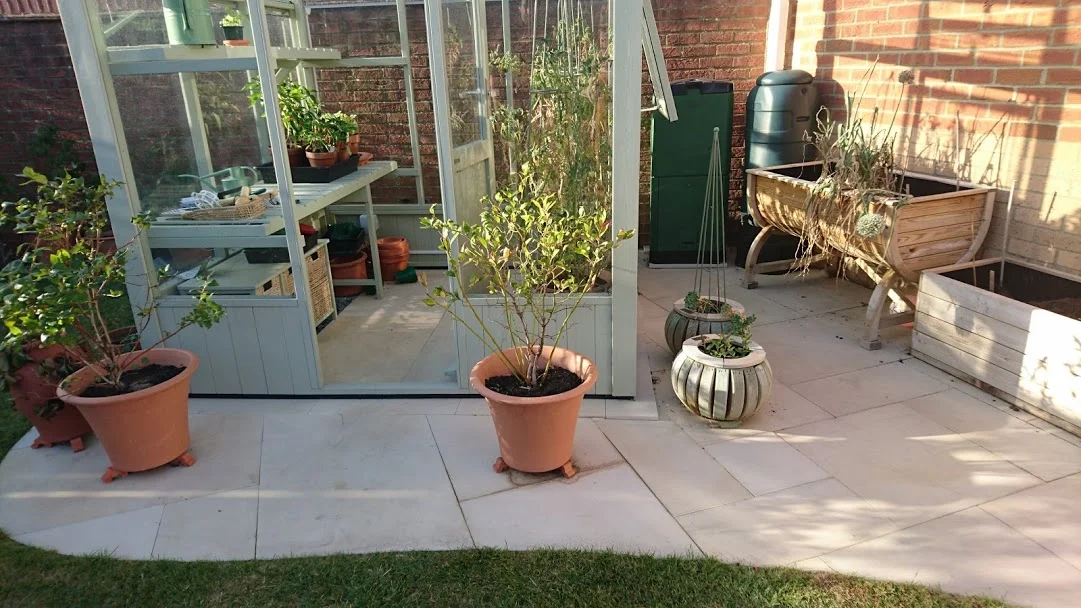





Did you know a shampoo bar “transition phase” is a myth? This guide will tell you everything you need to know about switching to solid shampoo and how to avoid waxy hair in hard water areas.